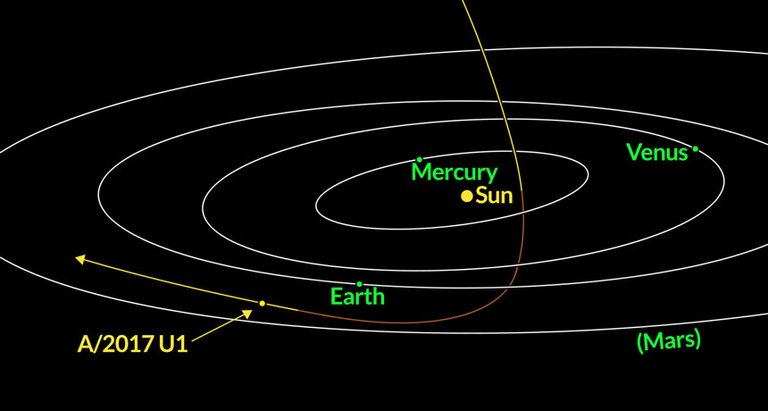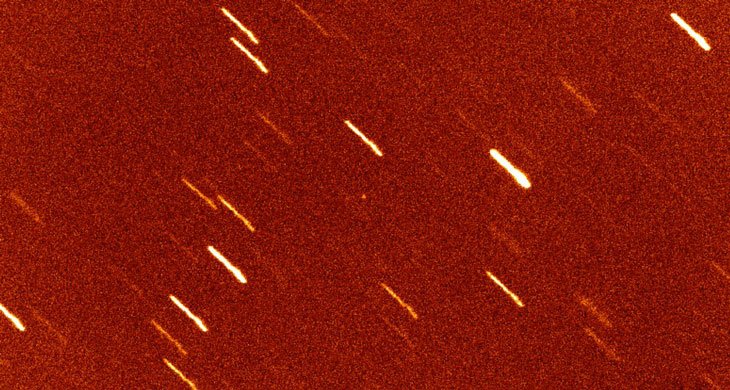
Astronomers may have just spotted the first asteroid caught visiting the solar system from another star.
The Pan-STARRS 1 telescope in Hawaii discovered the object, dubbed A/2017 U1, on October 18. More observations from other telescopes around the world suggest the object’s trajectory is at an unusually steep angle to the plane on which all the planets lie, and it does not orbit the sun. A/2017 U1’s slingshot route suggests it is a recent visitor to the solar system — and is now on its way out again. The discovery was announced in a bulletin published October 25 by the International Astronomical Union’s Minor Planet Center.
All asteroids previously seen come from within the solar system and circle the sun. Even comets, which come from a distant reservoir of icy rocks in the solar system called the Oort cloud and can have highly titled orbits, still orbit the sun.
Astronomers first pegged the object as a comet thanks to its elongated path, but additional telescope observations October 25 indicate it’s more likely that A/2017 U1 is an asteroid. Those observations revealed that the object looked like a single, sharp point of light, suggesting it is not a comet, which would have an extended icy halo. The asteroid is probably no more than 400 meters across and is zooming through the solar system at 25.5 kilometers per second.
The new data also supported the wacky trajectory, suggesting the object truly is a visitor from beyond. “It’s now looking very promising,” says planetary scientist Michele Bannister of Queen’s University Belfast in Northern Ireland, although she would still like to get more data to be sure. Astronomers are already planning to measure the colors in the asteroid’s reflected light to figure out what it’s made of, a clue to its origins
VISITOR FROM BEYOND The dot in the center of this image is A/2017 U1, which may be the first asteroid caught visiting from another solar system. The image was taken with the William Herschel Telescope in La Palma, Spain.
I thought this asteroid is supposed to be trap by the gravitational influence of the sun or the solar system.
Vote for vote
.....follow now
Hi! I am a robot. I just upvoted you! I found similar content that readers might be interested in:
https://www.sciencenews.org/article/interstellar-asteroid-might-have-just-been-spotted-first-time
This is Awesome.......
Bro.